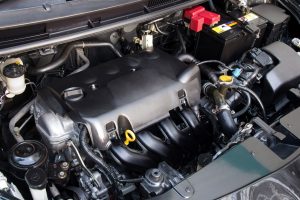Understanding your car’s engine system might seem daunting, but it’s actually simpler than it appears. Let’s break it down into bite-sized pieces to help you get familiar with the basics of automotive systems.
The Heart of the Car: The Engine
At the core of your vehicle’s system is the engine. This is often referred to as the heart of the car because it provides the power needed to make the wheels move. The engine converts fuel into mechanical energy through a process called combustion. Here’s a simple look at how it works:
- Intake: Air and fuel enter the engine.
- Compression: The engine compresses the air-fuel mixture.
- Combustion: The spark plug ignites the mixture, causing an explosion.
- Exhaust: The engine expels the burnt gases through the exhaust system.
Key Components of the Engine System
To understand how the engine works, it helps to know its main components:
- Cylinder: The chamber where the fuel-air mixture burns.
- Piston: Moves up and down within the cylinder, creating power.
- Crankshaft: Converts the pistons’ up-and-down motion into rotational motion.
- Camshaft: Controls the opening and closing of the engine’s valves.
- Spark Plug: Ignites the fuel-air mixture.
Each of these parts plays a critical role in ensuring your engine runs smoothly.
The Fuel System
Your car’s fuel system delivers the right amount of fuel to the engine. It includes:
- Fuel Tank: Stores the fuel.
- Fuel Pump: Moves fuel from the tank to the engine.
- Fuel Injectors: Spray fuel into the engine for combustion.
A well-maintained fuel system ensures your engine gets the proper fuel mixture, which is essential for optimal performance.
The Cooling System
Engines generate a lot of heat, so the cooling system is crucial to prevent overheating. It includes:
- Radiator: Cools the engine coolant.
- Coolant: Circulates through the engine to absorb heat.
- Thermostat: Regulates the temperature of the coolant.
Without a functioning cooling system, your engine could overheat, leading to potential damage.
The Electrical System
Modern cars rely heavily on electrical systems to function correctly. Key components include:
- Battery: Provides the power needed to start the engine and run electrical systems.
- Alternator: Charges the battery and powers electrical components while the engine is running.
- Starter Motor: Engages the engine when you turn the ignition key.
A reliable electrical system is essential for starting your car and keeping all its electronic components functioning.
The Exhaust System
The exhaust system removes the harmful gases produced during combustion and helps reduce noise. It consists of:
- Exhaust Manifold: Collects exhaust gases from the engine.
- Catalytic Converter: Converts harmful gases into less harmful substances.
- Muffler: Reduces the noise produced by the exhaust gases.
Maintaining a healthy exhaust system ensures your vehicle runs cleaner and quieter.
Regular Maintenance Tips
Understanding the basics of car systems can help you keep your vehicle in top shape. Here are some tips:
- Check Oil Regularly: Ensure your engine oil is at the proper level and replace it according to your car’s maintenance schedule.
- Monitor Fluid Levels: Keep an eye on coolant, brake fluid, and transmission fluid levels.
- Inspect Belts and Hoses: Regularly check for wear and tear to avoid breakdowns.
- Change the Air Filter: A clean air filter helps your engine run efficiently.
Your car’s engine system is a complex but fascinating part of vehicle systems and components. By understanding how your engine and its associated systems work, you’ll be better prepared to handle basic maintenance and identify any issues that might arise. Car systems explained in simple terms can make all the difference in how well you care for your vehicle. Keep these basics in mind, and your car will thank you with many miles of smooth driving!
